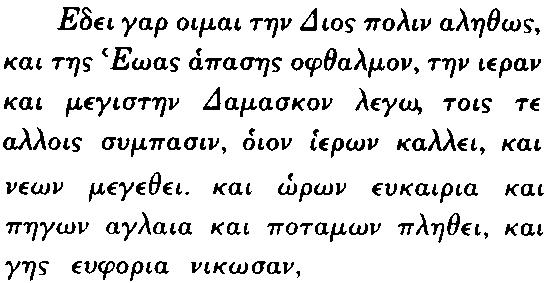
etc. Julian Epist. xxiv. p. 392.

These splendid epithets are occasioned by the figs of Damascus, of which the author sends a hundred to his friend Serapion, and this rhetorical theme is inserted by Petavius, Spanheim, etc. (p. 390 396), among the genuine epistles of Julian. How could they overlook that the writer is an inhabitant of Damascus (he thrice affirms that this
peculiar fig grows only ), a city which Julian never entered or approached?
), a city which Julian never entered or approached?